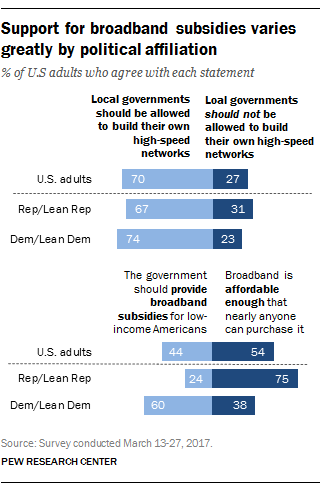Pew Puts State Broadband Policy in One Place - Community Broadband Bits Podcast 372

For community leaders, advocates, and researchers who follow broadband policy, trying to stay up-to-date on the many variations of state policy across the U.S. is a daunting task. As approaches change, the work becomes more complicated. Now, the Pew Charitable Trusts has launched a new tool that helps keep all that information sorted and accessible — the State Broadband Policy Explorer. Manager of the Broadband Research Initiative at Pew Charitable Trusts Kathryn de Wit sits down with Christopher to talk about the tool for this week's podcast.
Kathryn describes some of the challenges and discoveries her team encountered while developing the tool. She talks about the wide variations her team documented, especially in definitions, and their determination that those variations rely on who in each state determines which definitions will be used.
While working on the State Broadband Policy Explorer, Kathryn and her team were surprised to learn that, contrary to popular reporting, not as many states have established official offices of broadband deployment as they had expected. She shares commonalities between states that they found surprising while she and Christopher ponder some of the many ways the tool may be used moving forward.
We've already bookmarked this valuable tool.
Check out the State Broadband Policy Explorer for yourself here.
This show is 27 minutes long and can be played on this page or via Apple Podcasts or the tool of your choice using this feed.
Transcript below.
We want your feedback and suggestions for the show-please e-mail us or leave a comment below.
Listen to other episodes here or view all episodes in our index. See other podcasts from the Institute for Local Self-Reliance here.
Thanks to Arne Huseby for the music. The song is Warm Duck Shuffle and is licensed under a Creative Commons Attribution (3.0) license.




 Colorado Springs, known as one of the state’s more conservative communities, passed the measure with 61 percent of the vote, not far from the results of the Pew Research survey.
Colorado Springs, known as one of the state’s more conservative communities, passed the measure with 61 percent of the vote, not far from the results of the Pew Research survey.